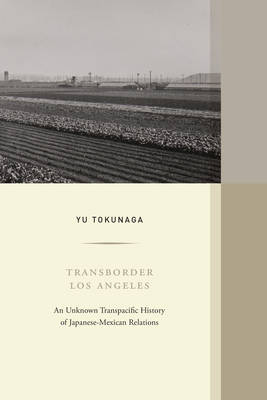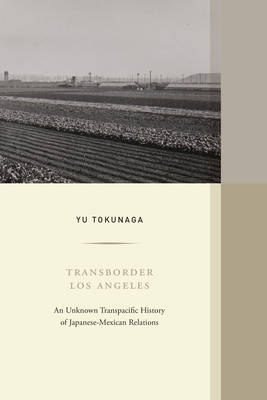
- Afhalen na 1 uur in een winkel met voorraad
- Gratis thuislevering in België vanaf € 30
- Ruim aanbod met 7 miljoen producten
- Afhalen na 1 uur in een winkel met voorraad
- Gratis thuislevering in België vanaf € 30
- Ruim aanbod met 7 miljoen producten
Zoeken
Transborder Los Angeles
An Unknown Transpacific History of Japanese-Mexican Relations Volume 12
Yu Tokunaga
€ 161,45
+ 322 punten
Uitvoering
Omschrijving
Focusing on Los Angeles farmland during the years between the Immigration Act of 1924 and the Japanese Internment in 1942, Transborder Los Angeles weaves together the narratives of Mexican and Japanese immigrants into a single transpacific history. In this book, Yu Tokunaga moves from international relations between Japan, Mexico, and the US to the Southern California farmland, where ethnic Japanese and Mexicans played a significant role in developing local agriculture, one of the major industries of LA County before World War II. Japanese, Mexicans, and white Americans developed a unique triracial hierarchy in farmland that generated both conflict and interethnic accommodation by bringing together local issues and international concerns beyond the Pacific Ocean and the US-Mexico border. Viewing these experiences in a single narrative form, Tokunaga breaks new ground, demonstrating the close relationships between the ban on Japanese immigration, Mexican farmworkers' strikes, wartime Japanese removal, and the Bracero Program.
Specificaties
Betrokkenen
- Auteur(s):
- Uitgeverij:
Inhoud
- Aantal bladzijden:
- 274
- Taal:
- Engels
- Reeks:
Eigenschappen
- Productcode (EAN):
- 9780520379787
- Verschijningsdatum:
- 18/10/2022
- Uitvoering:
- Hardcover
- Formaat:
- Genaaid
- Afmetingen:
- 155 mm x 231 mm
- Gewicht:
- 476 g

Alleen bij Standaard Boekhandel
+ 322 punten op je klantenkaart van Standaard Boekhandel
Beoordelingen
We publiceren alleen reviews die voldoen aan de voorwaarden voor reviews. Bekijk onze voorwaarden voor reviews.











